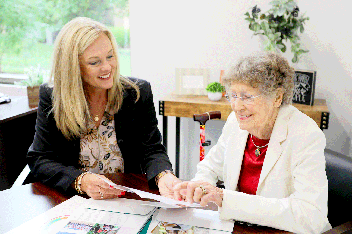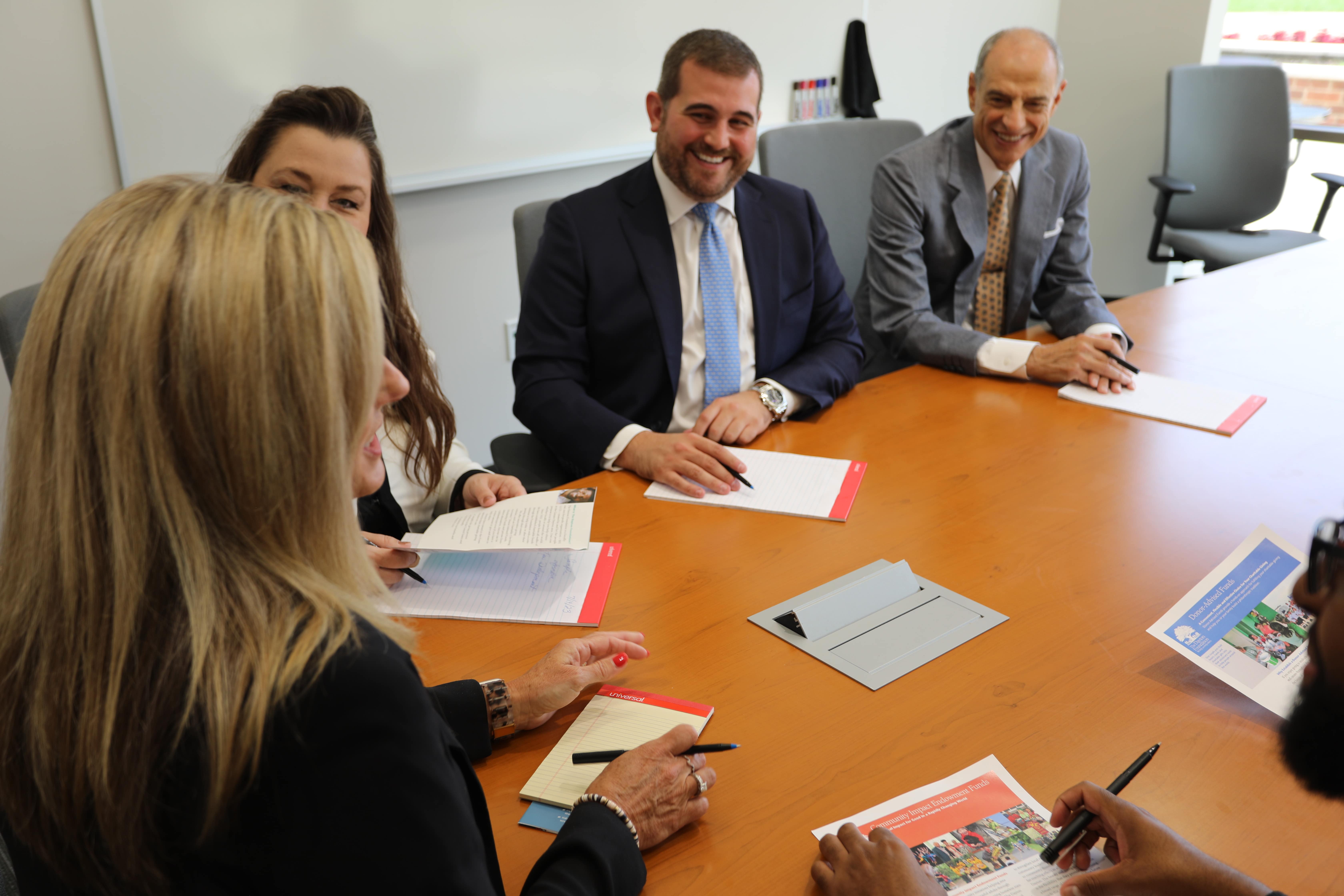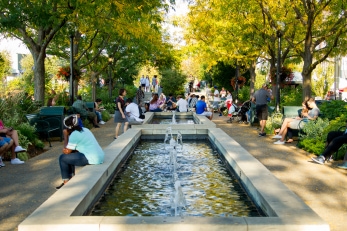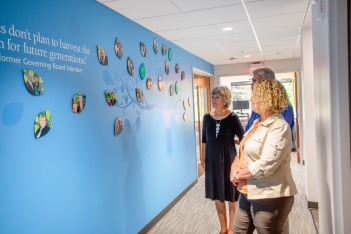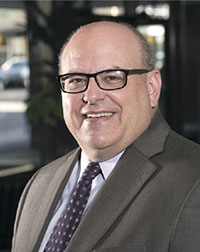
Michael M. Parks
As we wrap up The Dayton Foundation’s Centennial Celebration year and launch its next 100 years of service, it only seems fitting that I continue to spotlight equity and inclusion. These efforts align with one of the Foundation’s founding principles, to help create access and opportunities for individuals who wouldn’t otherwise have them.
This column’s featured expert is Mary Tyler. During her long career, Mary has worked in communities in four different states, served in various leadership roles within the United Way National Diversity and Inclusion Council and as director of The National Conference for Community and Justice of Greater Dayton. Her background offers her a unique perspective in her work now as a diversity, equity, inclusion and access consultant.
What similarities do you see as far as racial disparities nationally compared with those we are facing in Greater Dayton?
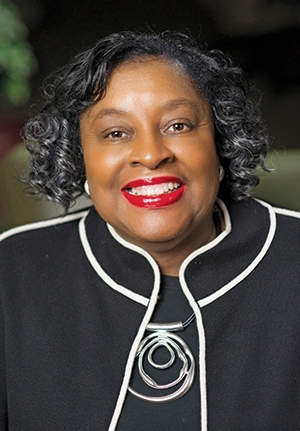
Just like Greater Dayton, communities in other parts of the country attempt to address racial disparities. However, there appears to be only increased attention and efforts following a highly publicized event. Then fatigue sets in and communities, except for select dedicated individuals and groups, return to business as usual. Addressing and dismantling historically authorized racial systems and policies is complex, intense, challenging and messy. It’s a journey!
Building trust between those who possess power and those without power is required to move this work forward. I have observed marginalized individuals or underrepresented groups when decisions are being made that impact them in other communities. Often, this dynamic plays out when it’s stated that we want to be inclusive, yet the same individuals are invited to the table or there’s another table where those in power invite a hand-picked few to participate in a meeting where plans and decisions actually occur. Only when those in power understand that it’s not a win-lose proposition but a win-win for all will change happen and power, information and access can be shared.
There are many individuals working in this space of racial injustice within those communities and Greater Dayton. However, there are few centralized and coordinated efforts with stated metrics. There can be a more significant impact from collective action. Individuals want and deserve change that includes economic, social and cultural rights.
I hope the Institute for Livable and Equitable Communities’ work, spearheaded by the Miami Valley Regional Planning Commission (MVRPC), will demonstrate our courage and resolute leadership. We are a nationally recognized community of innovation. When we apply the same level of ingenuity, attention and determination to overcome racial disparities, we can become a model for the country.
In your consulting work, you conduct countywide equity listening sessions. What are some common themes that have been uncovered during these sessions?
We were fortunate to have a diverse group of individuals candidly participate in the equity listening sessions.
It was evident that we need to increase awareness of what equity means in the content of the county leadership’s desire to create a community-wide equity culture. The comments convey a need to develop some common language residents may use. We asked participants to identify their top two needs or areas vital to them and their families. The results in ranking order were: health, opportunity and neighborhood (tied), housing, environment, transportation and engagement.
An overwhelming number of attendees agreed that organizations and institutions must set goals to have leadership and staffing that mirrors the community’s demographics. Overall, the participants shared a host of creative ideas. Individuals appreciated the opportunity to weigh in and requested updates on the progress made.
How is the work of the Institute for Livable and Equitable Communities helping to address diversity, equity and inclusion in Greater Dayton?
In partnership with MVRPC, Learn to Earn Dayton, The Dayton Foundation, PNC Bank and many other organizations, we introduced the traveling “Undesign the Redline” exhibit, which will be on display until 2022. Residents can experience the exhibit’s visually captivating storyline that illustrates how communities like Greater Dayton often are racially segregated. The project includes research from MVRPC’s Miami Valley Equity Regional Profile, where individuals can learn how government authorized and promoted policies created many of the social issues and injustices we experience today. The exhibit encourages discussion about race, wealth, power and opportunity to lead to an equity-focused movement.
In addition, MVRPC recently kicked off the inaugural Environmental Justice Academy with 27 first cohort members. The academy consists of a nine-month program of courses, assignments and projects. Participants learn collaborative problem-solving among local governments, small businesses, academic institutions and industry to create a shared vision among them so that all parts of a community have a voice in addressing local environmental justice concerns.
How can individuals and businesses get involved with efforts to promote diversity, equity and inclusion?
The first step is educating oneself about the history of racial injustices and being open to reviewing this information through an equity lens. Once educated, individuals can consistently speak out when they witness or experience inequitable policies, practices and behavior.
Businesses might consider conducting an audit of their policies and practices and making the necessary changes to promote an equitable culture. Additionally, the ongoing support of African-American or African-descent-led nonprofit organizations is essential to their success in serving individuals and families. Equally important is the investment and patronage of black-owned businesses and entrepreneurs. This backing promotes wealth building, fosters job creation, serves as a model of accountability for other companies, encourages individual stewardship and empowers local communities.
We live in a rich and vibrant region, and I count it a blessing to serve in a leadership role. As my mother taught our family, we have an obligation to speak up when we observe someone harmed by another or treated unfairly. She also said it’s our responsibility to be part of the solution. I am committed to this work and look forward to the undeniable change on the horizon.


